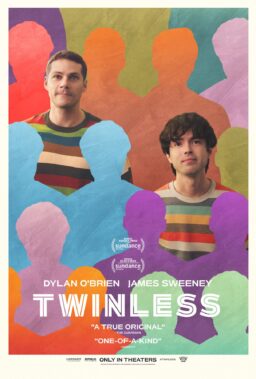Q. I am experiencing a crisis with a friend who insists on lowering some of my favorite films to the common denominator of “Hair Movies.” I really liked “Last of the Mohicans,” as there have never been enough decent Revolutionary Era films. My friend says the film was a failure because nobody had access to creme rinse in those days, as “Hawkeye” must have, since his hair was too perfect. Now when I think of this film, I can only see Daniel Day Lewis in curlers on the way to the set. It happened again with “Legends of the Fall,” where Brad Pitt’s hair (according to my friend) had an unnatural luster that could not have been achieved without creme rinse.
Now it has gone too far. I am a history buff, Mel Gibson fan, and Scotsman by descent. I am eagerly awaiting “Braveheart,” but my friend mischievously commented the other day “Oh, another Hair movie, eh?” I have now lodged in my consciousness a picture of Sir William Wallace looking like Fabio on a paperback cover, replete with wind machines and unbuttoned shirt. All period movies now look like “Dr. Quinn Medicine Woman” to me. What do you think about this, and do you have any remedial suggestions? (James T. Cook, Corpus Christi, Texas)
A. As a corrective, I suggest you rent “Roadie,” and study Meat Loaf’s hair carefully to see what the heroes of the movies you love would have looked like without modern advances in hair care.
Q. Why do movie directors feel compelled to change Jim Carrey’s hair? In “Earth Girls Are Easy” it was dyed blond, in “Ace Ventura” it was a Fifties Elvis pompadour, “Dumb and Dumber” I don’t even like to think about, “The Mask” altered it for obvious reasons, and the preview of “Batman Forever” has him as the Riddler with a blond buzzcut. What gives? The man’s normal hair is wonderful. (Carolyn Hurwitz, Owings Mills, Md.)
A. Maybe he is saving it for the day when he plays his first normal character.
Q. Do actors and actresses get paid extra to cut or shave their hair for a movie? (Murray James-Bosch, Scarborough, Ontario)
A. No. They get paid plenty to begin with, and make whatever alterations to their appearance they think will add to their performance. Extras and bit players, however, get paid extra if they have to cut their hair. Footnote: When you see a star who has hair and a shaved head in different scenes of the same movie (De Niro’s Mohawk cut in “Taxi Driver,” for example) the bald effect is almost always some sort of makeup technique like a skull cap. That’s because if retakes of “hair” scenes were necessary, it would take too long for the hair to grow back.
Q. I was stunned that you gave “Priest” one star and “Major Payne” three stars. I am a Catholic priest currently inactive in ministry. I felt that the portrayal of the two priests epitomized the angst that afflicts most priests I know. I even know ones like the first chap who took a crucifix to the Bishop’s home, and the last old chap who was so rigid and stale. I knew those scenes of personal torment. I felt that the film lingered on the pain and struggle without flinching. While I was troubled by the serial endings that plagued the latter half of the movie (I kept thinking, ‘OK, now it’s over. No? Whoops, here we go again’) I thought it was a powerful portrait of the privatized hell of public religious icons. I can at least say that I saw it in full rather than condemn it out of hand without seeing it like some bishops. (Daniel L. Conditt, Long Beach, Calif.)
A. Star ratings are of course relative, not absolute; if you tried to make stars consistent across genres, you’d go nuts. In “Priest,” the film’s message was: These stupid church rules prevent priests from having sex, but permit it to child abusers. Yet the whole confessional subplot (the vow of secrecy which prevented the priest from stopping the child abuse) was a gimmick with a hole in it, since the priest could have gone to the cops with what the girl’s father told him. The younger priest takes the vow of secrecy seriously because that is convenient to the plot, but doesn’t take any other vows seriously, nor does he hesitate before attempting suicide. Many people valued the film because it mirrored their own beliefs or feelings. That makes it important to them, which is certainly valid, but does not make it a good film.











